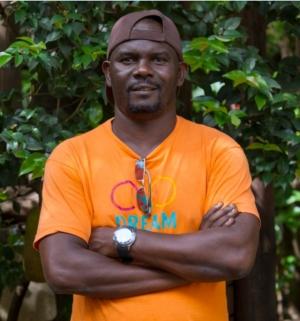Denial and none Adherence to Treatment almost cost Moses “Supercharger” Nsubuga his life
Moses “Supercharger” Nsubuga, a musician and radio host in Uganda has been living with HIV since 1994. Like many others, he unknowingly got infected with HIV in 1994 at a time when HIV incidence was at its highest.
“I lived in denial for four years and did not want anyone to know that I had HIV”, he says. He points out that with his nature of work, he risked losing his audience and being stigmatized due to his condition. “However, living in denial didn’t help me at all. I fell sick, became weak, lost weight and could barely work”, he says.
In 1998, Moses visited The AIDS Support Organization (TASO) to seek support and antiretroviral (ARV) treatment after falling gravely ill. “The four years of denial put me in a sorry state because I was too weak to do anything productive, not even working”, he says. However, when he started medication, his health improved significantly. “There was a noteworthy improvement in my health, I became the “Supercharger” everyone always knew. I was able to return to the studio to make more music and do my show.” he adds.
However, a month after starting the treatment, Moses stopped taking the drugs as prescribed. “I was not used to swallowing drugs every day and on top of that they were too expensive,” he says. Moses highlights that the cost of drugs forced him to swallow the medication sparingly, in order to have enough for the next day. “At that time, the drugs cost about 300$ and that was too expensive for me, and so I did not follow the doctor’s prescription.”
He was to learn later that he had made a fatal mistake.
Moses became ill again and returned to the “sorry” state he had previously been in. “I became worse and thought I was about to die”, he says. As a result, Moses was switched to the second line of treatment, which he says was more expensive and had worse adverse effects than the first line that he had not adhered to. “If I had known, I would have observed the prescription as it had been given to me. The second line of drugs was less friendly than the first but it worked”, he says.
Every year, the World Health Organization (WHO) joins other countries to commemorate World AIDS Day. This year the theme for the World AIDS day which marked its 30th anniversary on 1 December, was “Know your status”.
During this years World AIDS Day commemoration, The President of Uganda H.E President Museveni said that the persistent high prevalence of HIV/Aids infection among Ugandans remains a national threat that is hurting the country’s economic progress.
“We are challenged to stop new HIV infections, support those infected with HIV and remember those who have lost their lives to HIV related diseases. I would like to remind Ugandans that HIV/Aids has no cure and that’s why it is a threat to national development,” Mr Museveni said in his speech during the commemoration of World Aids’ Day on Saturday at Bugobero Health Centre III, Manafwa District.
“It is very important to know your status because, frankly, there is life after testing HIV-positive”, Moses notes.
Since 1998, significant progress has been made in the AIDS response, and today, three in four people living with HIV know their status. However, the journey ahead is still long, as the latest UNAIDS report shows, and that includes reaching people living with HIV who do not know their status and ensuring that they are linked to quality care and prevention services.
HIV testing is essential for expanding treatment and ensuring that all people living with HIV can lead healthy and productive lives. It is also crucial to achieving the 90–90–90 targets and empowering people to make choices about HIV prevention so they can protect themselves and their loved ones.
Moses gladly notes that he has adhered to treatment since the year 2000. “I have not missed or skipped a dose since I switched to the second line of treatment”, he says.
He further calls everyone to go for HIV testing and if found positive begin treatment.
Unfortunately, many barriers to HIV testing remain. Stigma and discrimination still deter people from taking an HIV test. Access to confidential HIV testing is still an issue of concern. Many people still only get tested after becoming ill and symptomatic.
The good news is that there are many new ways of expanding access to HIV testing. Self-testing, community-based testing and multi-disease testing are all helping people to know their HIV status.
HIV testing programmes must be expanded. For this, we need political will and investment, as well as novel and innovative approaches to HIV testing that are fully leveraged and taken to scale.
As a public figure and an HIV advocate, Moses Nsubuga is using his platform to reach out to the community to test for HIV. He says, “Honestly I cannot accept a job that does not involve me working with the community to push positive messages about HIV & AIDS.” He adds that the materials and tools are available to reach out to everyone to know their HIV status.



